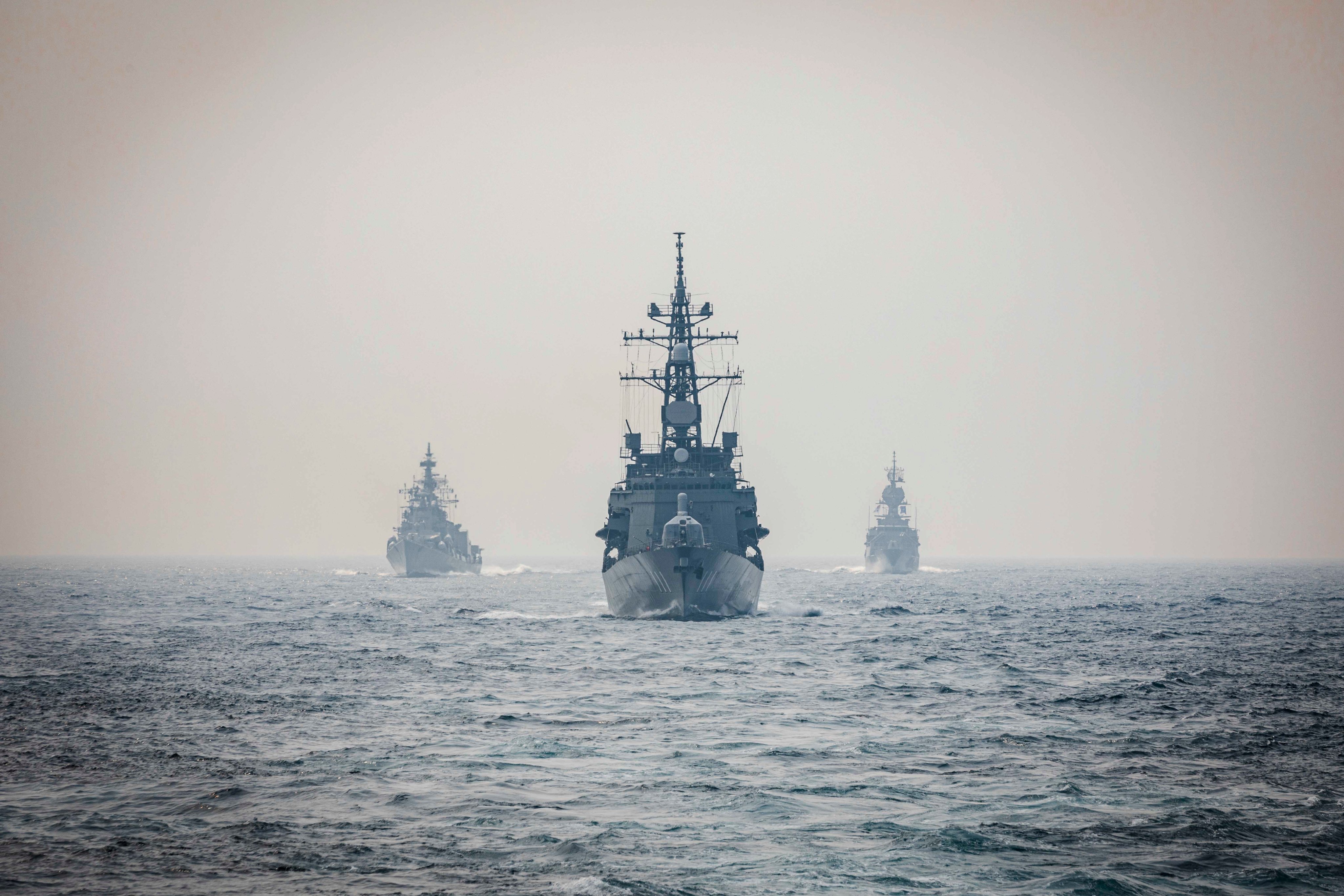
China Monitor is our brand-new program that analyses China’s economic and foreign policies. It also aims to predict the consequences of Beijing’s policy for the global economy, the EU as well as Central and Eastern European countries such as Poland.
Date: 6 November 2020 Author: Łukasz Kobierski
Malabar Exercise, “Asian NATO” and Beijing’s Response
The Malabar 2020 Naval Exercise began on November 3 with the United States, India, Japan and, for the first time, Australia participating. They are therefore the maneuvers of the Quad group (Quadrilateral Security Dialogue), which could challenge the expansionist drive of China. Concerns about such initiatives were reflected in Beijing’s reaction in the media and the diplomatic sphere.

The Navy of the United States, India, Japan and Australia launched the Malabar 2020 Naval Exercise in the Bay of Bengal on Tuesday, November 3. Its second part will be conducted in the Arabian Sea in the second half of November. An undeniable success of the US diplomacy is that the maneuvers were joined by Australia, which participated in such exercises along with the aforementioned countries for the first time after 13 years. The invitation was issued by India.
The Chinese media call the Malabar Exercise a “pillar of the Asian version of NATO,” which is supported by the United States. These maneuvers “serve US hegemonic ambitions with an eye on containing the rise of China.” The journalists warn that “the risks are increasing that the Indo-Pacific region will become a geopolitical hot spot.” Nevertheless, in some articles we can read that the establishment of the Asian NATO is unrealistic whilst the Quad mechanism has been called “primitive.”
As reported by the pro-government media, engaging too many forces in the region may lead to growing tensions and uncertainty, which does not favor regional development. The journalists point out, with some concern, that Germany is also planning to engage in the Indo-Pacific. According to the latest plans, the German Ministry of Defense and the Australian Navy will patrol the Indian Ocean together, most probably starting in 2021.
Support Us
If content prepared by Warsaw Institute team is useful for you, please support our actions. Donations from private persons are necessary for the continuation of our mission.
Zhao Lijian, a spokesperson for the Chinese Ministry of Foreign Affairs, did not say much about the Malabar Maneuvers: “China believes that military cooperation between countries should be conducive to regional peace and stability.” Another spokesperson of the Ministry of Foreign Affairs, Wang Wenbin, said on the first day of the maneuvers: “We hope that the actions by relevant countries will be conducive to regional peace and stability, rather than the opposite.” This is quite a subdued approach, especially since at the end of September he called Quad “an exclusive clique,” excluding and damaging “third party’s interests.” In October, Chinese Minister of Foreign Affairs Wang Yi called Quad an “Indo-Pacific NATO” and warned that this initiative would severely undermine regional security.
The criticism of the initiative of four countries has often included the lack of real benefits and bad publicity, which may result from cooperation with the USA. It was focused mainly on India. The editor-in-chief of the Global Times Hu Xijin wrote on Twitter that the US is inciting India against China. In his opinion, New Delhi and Beijing should be partners in development. The other editors of the daily advocate the statement that the USA will use India for its own interests. In the case of Japan and Australia, economic dependence on the Middle Kingdom was outlined.
The pro-government media and representatives of the Communist Party of China tried to present the Malabar Exercise and the Quad initiative as a regional threat. Possible economic losses of its members, which worsened their relations with Beijing, were pointed out. The articles showed, on the one hand, the ambition and anxiety caused by the joint exercises, and on the other hand, the weakness of the Quad format. Interestingly enough, the statements of spokespersons of the Chinese Ministry of Foreign Affairs on the aforementioned matter were quite lenient, which is unusual. Consequently, given the current geopolitics, Beijing allows for this type of exercise in the Indian Ocean, but not near its waters, especially in the South China Sea. The huge outcry, counter-maneuvers and the sudden exercises that occur in such cases, seem to confirm this state of affairs. In the long term, the Quad countries will have to cooperate even closer if they actually want to stop China’s superpower ambitions. Beijing will further develop its domination in the areas of the so-called first and second island chain, which are a priority for strengthening the Middle Kingdom’s position in the region.
All texts published by the Warsaw Institute Foundation may be disseminated on the condition that their origin is credited. Images may not be used without permission.

















